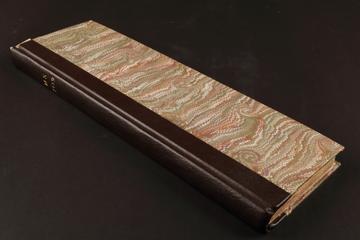
Walker, John 1781 - 1859
- Nationality:
- English; British
(1781-1859), pharmacist
John Walker, the inventor of the friction match, was born in Stockton-on-Tees on 29 May 1781. After his education, he became an apprentice to Watson Alcock, one of the town’s most important surgeons, but his interests lay mainly in botany and chemistry. After spending several years learning pharmacy and apprenticing as wholesale druggists, he returned home to his mother and siblings in 1812 and opened his own shop as "chemist and druggist" at 59 High Street in 1819. By that time he was 38 years old, and was one of the rare pharmacists in town who worked not only with natural ingredients, but also with many chemical substances which were not used much in human or animal medicine.
Walker often experimented with chemicals and used a splint to stir a mixture of antimony, sulphide, potassium chlorate, gum arabic, starch and water. The mix dried on the end of the splint and later it was accidentally scraped against his hearth creating a spark. Walker quickly realised that he could utilise this substance in a number of different ways and he started experimenting further to perfect his mixture.
When he was satisfied, he dipped sticks into the substance, bundled them up and started handing them out around the town. They proved to be a great success, and in April 1827 he began to sell them. Later, Walker changed the name of his invention to the somewhat snappier ‘Friction Lights’. It is believed that Walker felt his invention was not significant enough to patent even though in 1830 Michael Faraday, the famous scientist, tried to encourage him to do so, and finally it was a Londoner named Samuel Johnson who patented the matches under the new name of ‘Lucifers’.
As a result, Walker was practically penniless when he died on 1 May 1859, aged 78. Walker is buried at St. Mary the Virgin Church Parish Yard, Norton, England. He was credited with the invention of matches only after his death.